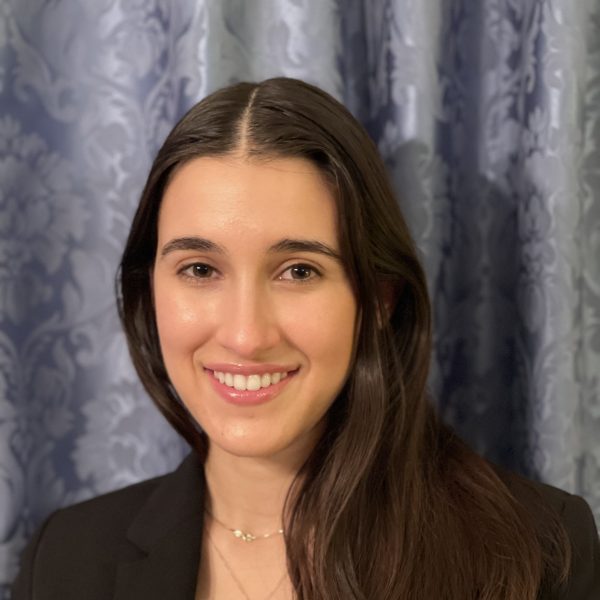
Assistant District Attorney, Middlesex District Attorney’s Office
This is the second profile in a new section of the Classics webpage, in which we check in with alumni from the department about their lives and careers after BU. Anastasia Kourtis Kurkuvelos started at BU in 2011 and graduated in 2015 with a double major in Classical Civilization and Anthropology, and a minor in Modern Greek. She is now an Assistant District Attorney at the Middlesex District Attorney’s Office. Department Chair James Uden recently interviewed Anastasia about her time at BU and the value of her Classics education.
Can you describe your current work and what your day-to-day looks like?
Yes! I am an Assistant District Attorney in the Middlesex District Attorney’s Office in the Framingham District Court, which has a great variety in the types of cases. I spend every day in court, which I love. We stand on new arraignments, pre-trial hearings, conference cases with other attorneys, argue motions, and handle jury and bench trials.
What are some strong memories from your time in the BU Classics Department?
I initially applied as a Religion major and didn’t actually declare a Classics major until my second year. Classics was always a big part of my childhood because my father was a Classics major and we always had Classics books in the home. I also connected with the field in part because of my Greek heritage. I took a lot of classes with Professor Esposito and Professor Samons. Since I was also a Modern Greek minor, I spent a lot of time with Professor Polychroniou. One of my more unique experiences was with Professor Esposito in his class on Sophocles. We had a lot of great discussions and engaged with articles alongside the plays. I can’t speak more highly of them all!
Are there any particular skills you think were developed in your time as a Classics major that help you in your job today?
Definitely! Specifically, I learned to see things from different perspectives. For example, in Professor Samons’ ‘Greek History’ and ‘Warfare in Antiquity’ courses, when we studied events from thousands of years ago, Professor Samons drew attention to the values and perspectives of those experiencing this world in real time. One example that’s particularly relevant to my current line of work is the jury trial. In Athens, being a part of a jury was initially something people really wanted to participate in, but even in antiquity that perspective shifted. I think about that a lot when I’m selecting a jury myself; I want people on the jury who want to be there, who will pay attention to the evidence, who will approach that responsibility with the seriousness it deserves. These courses also really drove home the idea of public service as an honor. My courses in the Classics Department strongly emphasized public service as a value for the Greeks, and I think about that a lot in my job. The very foundation of being a district attorney is public service. I try to remind myself that I am in a position of privilege, to listen to people, and to understand that others may have a different perspective and experiences.
Do you have any advice for undergraduates who are interested in Classics who might want to have a career in law?
Apply yourself the best you can in classes because grades do matter, but so does establishing relationships. Getting to know my professors in office hours helped me do this. When I applied to law school, I actually got calls telling me how glowing the letters of recommendation were, and I think that attests to how available Classics professors are to their students and their commitment to seeing them succeed. Another tip I have is to take small seminar classes and get to know your peers and establish those relationships as well.
Thank you very much to Anastasia Kourtis Kurkuvelos for this interview!